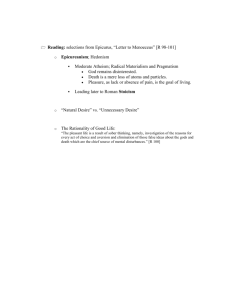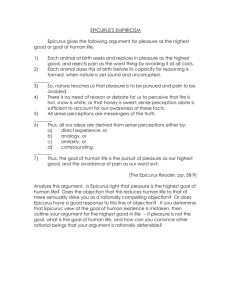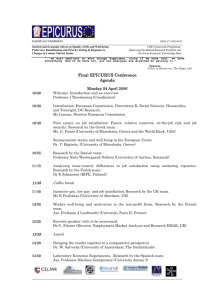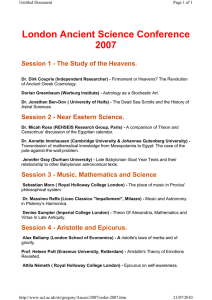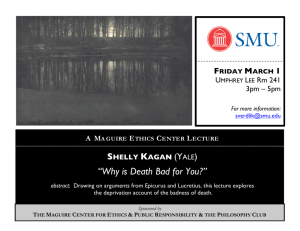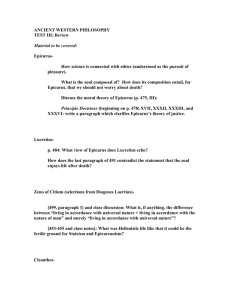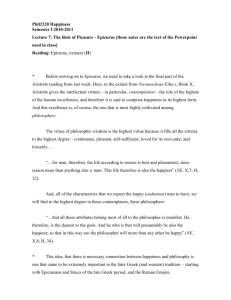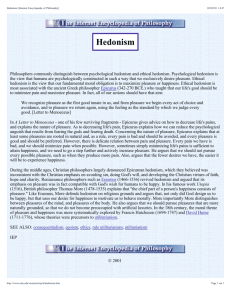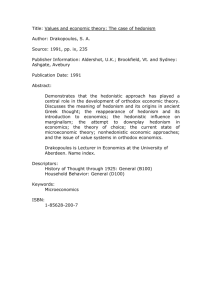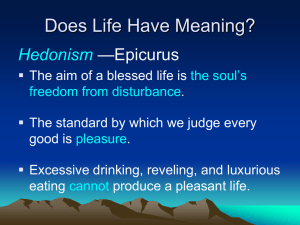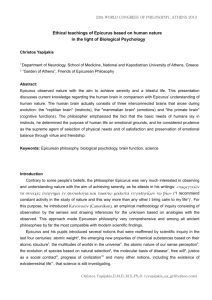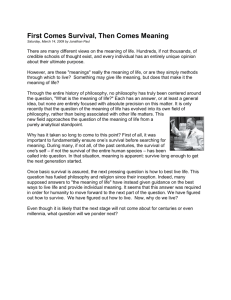Letter to Menoeceus
advertisement
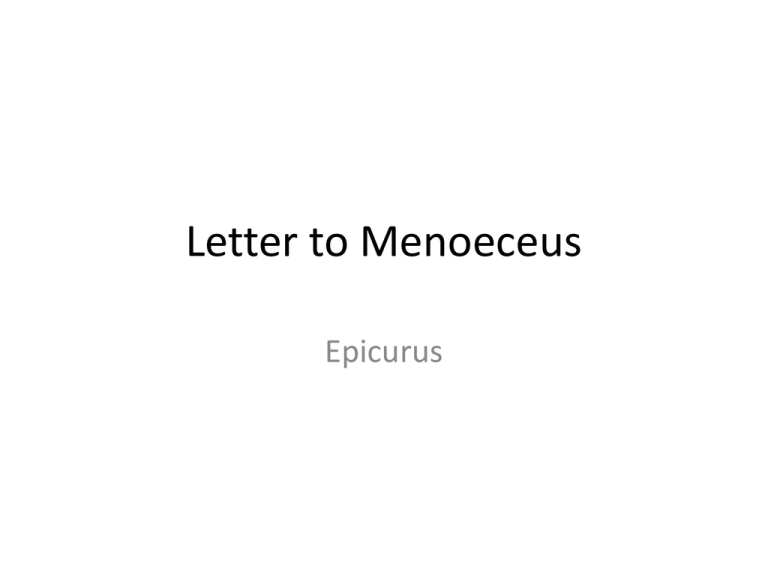
Letter to Menoeceus Epicurus Hedonism: • Hedonism is the view that pleasure is ultimately the only criteria for human welfare • That is, hedonism holds that what makes a person’s life go well for them is pleasure and only pleasure. What makes a person’s life go bad for them is pain and only pain. • Epicurus’s “Letter to Menoeceus” is an early and excellent example of a hedonistic theory of prudence. Sensation • Epicurus holds that “all good and evil consists in sensation” (p.178) • By this he means that something can only be good for a person if it feels good to that person. Likewise something can only be bad for a person if it feels bad to them. • This is why Epicurus advises against fearing death. There is no sensation in death, so it can’t be good or bad. The best life: • Hedonists are often misunderstood to be advocates of lust and gluttony and wildness. • Epicurus counsels a quiet life with a simple diet so that on those rare occasions when one does indulge, one can enjoy it all the more. • Also, lust, gluttony, and wildness tend to be accompanied by as much or more pain than pleasure in the long run. • It is more accurate to say that the Epicurean hedonist is a pain-avoider rather than a pleasureseeker. Study Questions: • What is Epicurus likely to say to someone who has a choice between going to a big party and staying at home to study? • Why is death neither to be welcomed nor feared? • What is the difference between a hedonistic theory of morality and a hedonistic theory of prudence?
